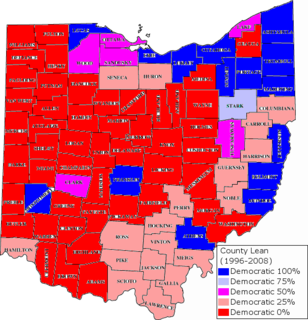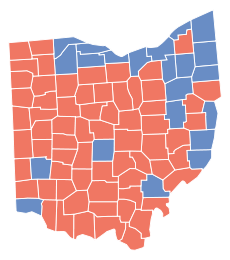Wausau Daily Herald: Husband and his wife are helping an African nation farm its was out of poverty
Husband and his wife are helping an African nation farm its was out of poverty
http://www.wausaudailyherald.c…
By Danielle Nierenberg
For the Wausau Daily Herald
Stacia and Kristof Nordin have an unusual backyard, and it looks a lot different from the Edgar yard in which Kristof grew up.
Rather than the typical bare dirt patch of land that most Malawians sweep “clean” every day, the Nordins have more than 200 varieties of mostly indigenous vegetables growing organically around their house. They came to Malawi in 1997 as Peace Corps volunteers, but now call Malawi home. Stacia is a technical adviser to the Malawi Ministry of Education, working to sensitize both policymakers and citizens about the importance of using indigenous foods and permaculture to improve livelihoods and nutrition. Kristof is a community educator who works to train people at all levels of Malawian society in low-input and sustainable agricultural practices.
The Nordins use their home as a demonstration plot for permaculture methods that incorporate composting, water harvesting, intercropping and other methods that help build organic matter in soils, conserve water, and protect agricultural diversity. Most Malawians think of traditional foods, such as amaranth and African eggplant, as poor-people foods grown by “bad” farmers. But these crops might hold the key for solving hunger, malnutrition and poverty in Malawi — as well as in other African countries.
Nowhere needs the help more than Malawi, a nation of 14 million in southeast Africa that is among the least developed and most densely populated on Earth.
The country might be best known for the so-called “Malawi Miracle.” Five years ago, the government decided to do something controversial and provide fertilizer subsidies to farmers to grow maize. Since then, maize production has tripled and Malawi has been touted as an agricultural success story.
But the way they are refining that corn, says Kristof, makes it “kind of like Wonder Bread,” leaving it with just two or three nutrients. Traditional varieties of corn, which aren’t usually so highly processed, are more nutritious and don’t require as much artificial fertilizer as do hybrid varieties.
“Forty-eight percent of the country’s children are still nutritionally stunted, even with the so-called miracle,” Kristof says.
Rather than focusing on just planting maize — a crop that is not native to Africa — the Nordins advise farmers with whom they work that there is “no miracle plant — just plant them all.” Research has shown that Malawi has more than 600 indigenous and naturalized food plants to choose from. Maize, ironically, is one of the least suited to this region because it’s highly susceptible to pests, disease and erratic rainfall patterns.
Unfortunately, the “fixation on just one crop,” says Kristof, means that traditional varieties of foods are going extinct — crops that already are adapted to drought and heat, traits that become especially important as agriculture copes with climate change.
“Design,” says Kristof, “is key in permaculture,” meaning that everything from garden beds to the edible fish pond to the composting toilet have an important role on their property. And although their neighbors have been skeptical, they’re impressed by the quantity — and diversity — of food grown by the family. More than 200 indigenous fruits and vegetables are grown on their small plot of land, providing a year-round supply of food to the Nordins and their neighbors.
In addition, they’re creating a “model village” by training several families who rent houses on the property,) to practice and teach others about the permaculture techniques that they use around their homes. They also have built an “edible playground,” where children can play, eat and learn about various indigenous fruits.
More important, the Nordins are showing that by not sweeping, burning and removing all organic matter, people can get more out of the land than just maize and reduce their dependence on high-cost agricultural inputs in the process.
And indigenous crops can be an important source of income for farmers. Rather than import amaranth, sorghum, spices, tamarinds and other products from India, South Africa and other countries, the Nordins are helping farmers find ways to market seeds, as well as value-added products, from local resources. These efforts not only provide income and nutrition, but fight the “stigma that anything Malawian isn’t good enough,” says Kristof. “The solutions,” he says, “are literally staring us in the face.”
And as a visitor walked around seeing and tasting the various crops at the Nordins’ home, it became obvious that maize is not Malawi’s only miracle.
Danielle Nierenberg is a senior researcher at the Worldwatch Institute, blogging daily from Africa
at: http://blogs.worldwatch.org/no… She can be reached at dnierenberg@worldwatch.org.




 Last week, I had the privilege of meeting with the new U.S. ambassador to Zimbabwe, Charles Ray. Ambassador Ray was gracious enough to take the time to answer my questions about agricultural development in a country facing political turmoil, high unemployment, and high food prices.
Last week, I had the privilege of meeting with the new U.S. ambassador to Zimbabwe, Charles Ray. Ambassador Ray was gracious enough to take the time to answer my questions about agricultural development in a country facing political turmoil, high unemployment, and high food prices. 

 hen a genuine democracy acts in the world it does so in the name of its citizens, especially when the preamble to its Constitution begins “We the people…,” basically meaning all of us. This is the foundation of our rights and also our responsibilities, not only as citizens of our own fair republic but as a people among the nations of the world. And our values are fairly judged, domestically and abroad, by the intentions and outcomes of those actions.
hen a genuine democracy acts in the world it does so in the name of its citizens, especially when the preamble to its Constitution begins “We the people…,” basically meaning all of us. This is the foundation of our rights and also our responsibilities, not only as citizens of our own fair republic but as a people among the nations of the world. And our values are fairly judged, domestically and abroad, by the intentions and outcomes of those actions.
